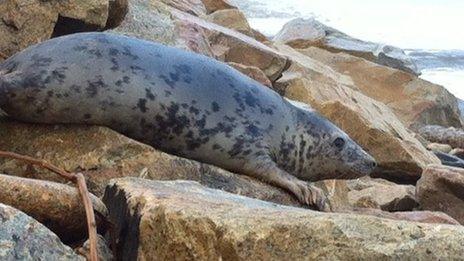Injured seal numbers soar at Cornwall sanctuary
- Published
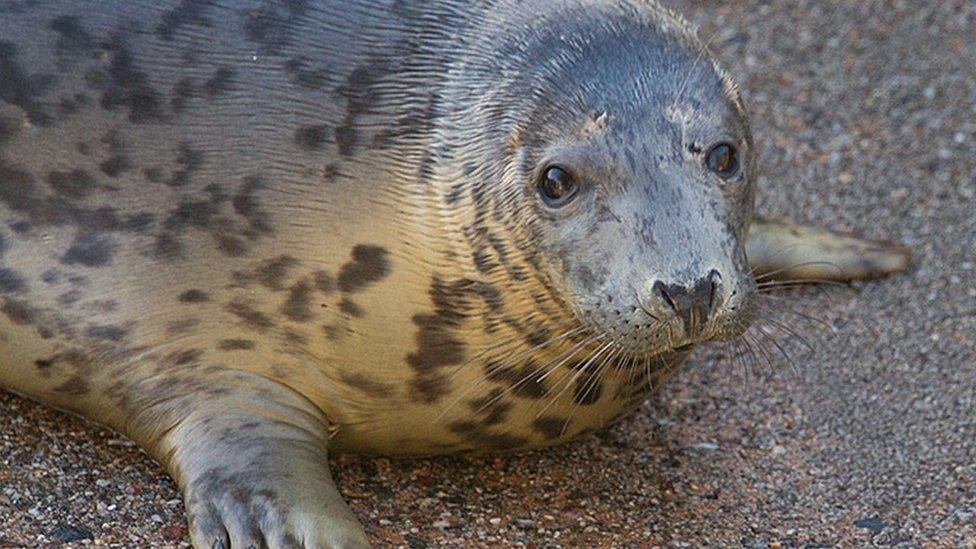
The Cornish Seal Sanctuary in Gweek usually rescues between 50 and 60 pups over the whole winter but it has already rescued 52
A seal sanctuary in Cornwall has seen a huge rise in the number of injured pups in the wake of Storm Gertrude, external.
The Cornish Seal Sanctuary in Gweek usually rescues between 50 and 60 pups over a whole winter but it has already rescued 52.
Staff also expect the influx to continue to the end of March, with Storm Henry, external preparing to sweep in.
The stormy conditions are preventing staff from releasing seals back into the wild.
Read more on this story as it develops throughout the day on our Local Live pages
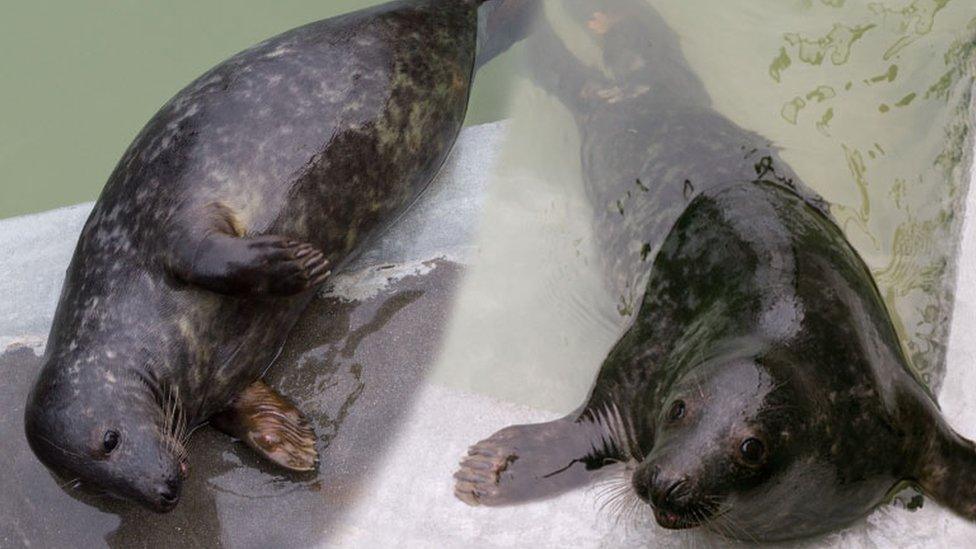
Sanctuary curator Tamara Cooper said many pups were underweight and had been injured by being dashed on rocks
Sanctuary curator Tamara Cooper said many pups were underweight and had been injured by being dashed on rocks.
"They have come in thick and fast over the stormy period and we are expecting more over the coming months," she said.
"Some are only a few months old and they come ashore to rest.
"They are very skinny and need feeding up. We have six ready to go so we are just waiting for a clear spell of weather."
Storm Henry is predicted to bring treacherous conditions and high winds of up to 90mph to the north of Britain today.
Storm Gertrude brought gusts of more than 100mph in places as well as heavy rain and snow.
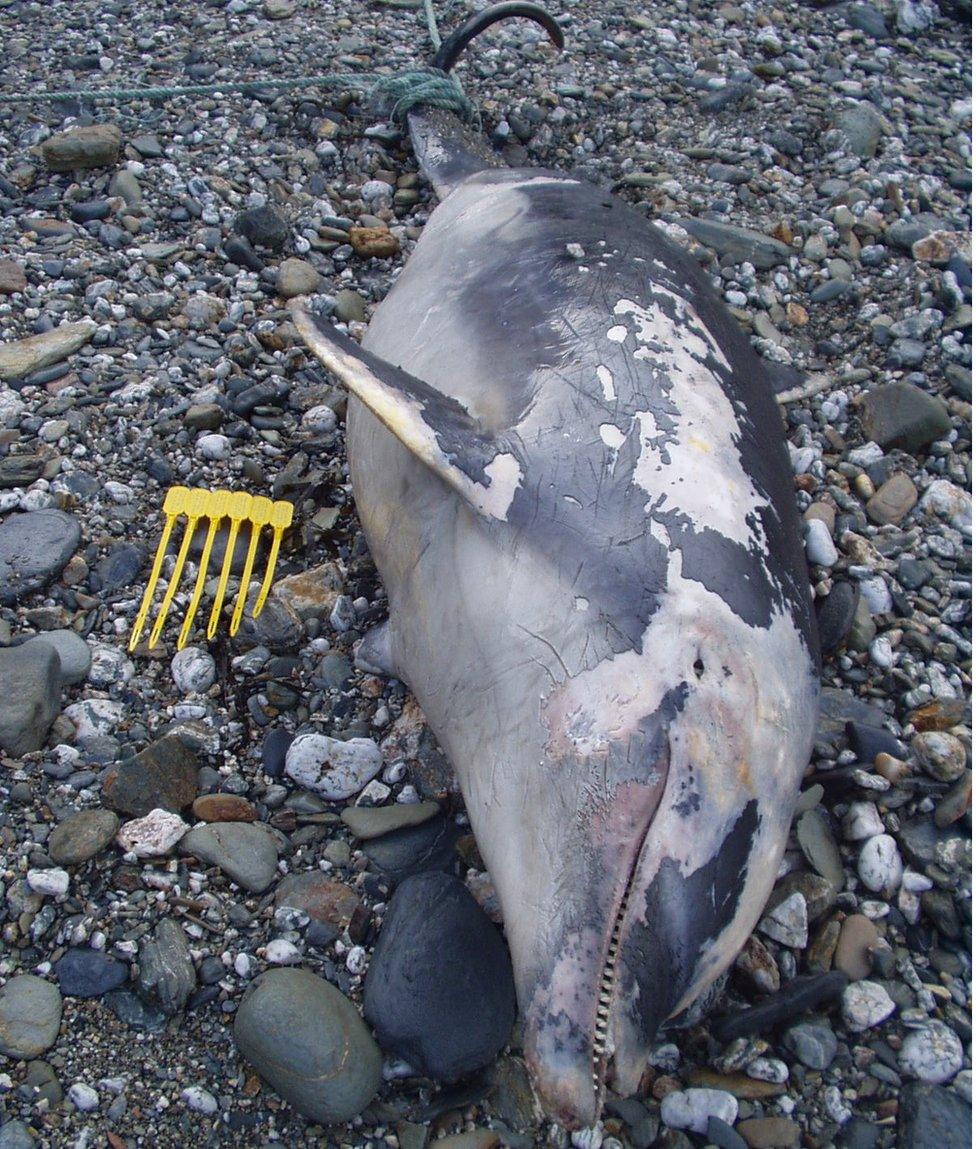
Wildlife experts said the number of dead cetaceans which have washed up was almost double the usual number for January.
Wildlife experts said an "extraordinary" number of dead dolphins have also washed up on Cornwall's shores this month due to recent weather systems.
Abby Crosby, Marine Conservation Officer at Cornwall Wildlife Trust, said: "We've had 19 different cetaceans, that's dolphins porpoises or whales, recorded when the last ten yearly average is 11. So we're looking at almost double the January average."
"It's a really sad situation, however it's an invaluable opportunity for us to examine these carcasses further to try and work out how they died and find out more about the biology and ecology of these amazing creatures."
- Published2 February 2016
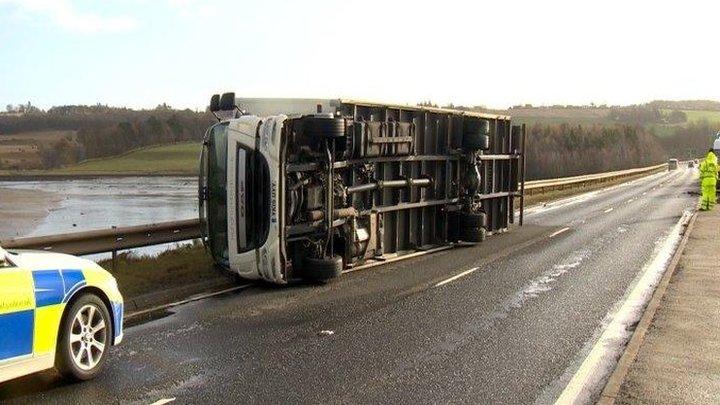
- Published12 January 2016
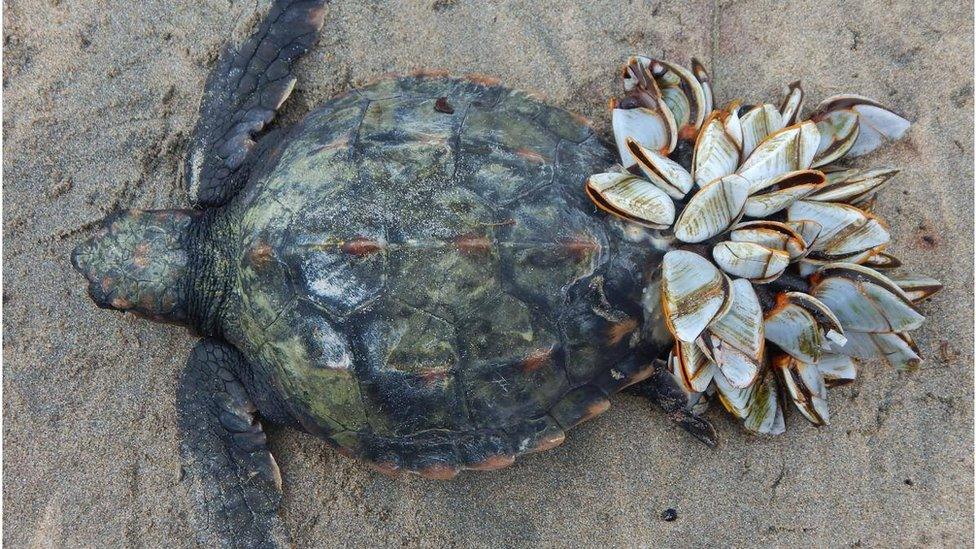
- Published28 May 2014
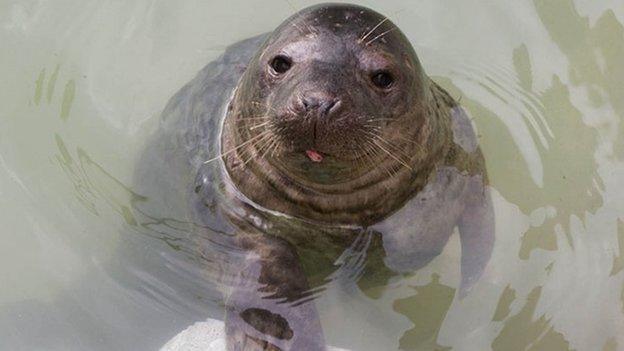
- Published18 February 2014
